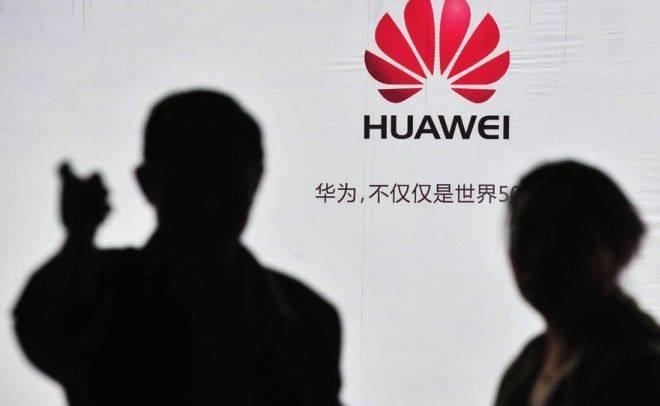U.S. Legislation Prejudicial to China
By DIAO DAMING
ON March 26 President Barack Obama signed into law a stopgap bill that funds the U.S. government through to September, so averting a widely feared government shutdown. This legislation, however, provoked comment in the IT industry in both China and the U.S. with the provision, added by a subcommittee of the House of Representatives, that restricts four federal agencies imports of “information technology systems”that are either “produced, manufactured, or assembled by one or more entities that are owned, directed or subsidized by the Peoples Republic of China.” The four agencies concerned are NASA, the Justice Department, Commerce Department and National Science Foundation. Purchases are prohibited without prior approval from the Federal Bureau of Investigation or another law enforcement agency after an analysis of cyber espionage and sabotage risks.
This measure is perceived as the latest attempt by the U.S. Congress to blockade economic cooperation and exchanges, in particular in science and technology, between China and the U.S. Last October the U.S. House of Representatives Intelligence Committee issued a report alleging that two leading Chinese technology companies, Huawei and ZTE, pose possible threats to U.S. national security. Such“presumption of guilt” is highly dissipative, against fair trade principles and detrimental to mutual trust between the two countries. Policies and measures based on this thinking will markedly undermine collaboration and communication between Chinese and American high-tech industries.
Anti-China Sentiments Die Hard
The inconducive role the U.S. Congress is playing in Sino-U.S. relations has been prominent since former Taiwan leader Lee Tung-huis 2005 visit to the U.S. Many everyday Chinese citizens have watched this behavior closely.
The American legislature continues to introduce hundreds of proposals concerning China every year, few of which are eventually adopted. But the nature of proposals against China has changed over past decades. They were formerly mostly in the form of bills – laws in the making – which are handled with greater caution and understandably have lower chances of getting the green light from the two houses and the president. Later they came more commonly in the form of resolutions, which are not all legally binding and dont always require the approval of both houses or the presidential signature. But a resolution has no power behind it: it is merely an expression of opinion and has no substantive impact on a matter.
However, in the scrabble to strike a deal on the so-called “fiscal cliff” of spending cuts and tax increase, some American legislators attached Chinarelated clauses to fiscal bills that were imperative to solve the deadlock of the U.S. government. Once such an appendix is approved, it will be enforced as part of a lump legislature in the next budget year.
The 2011 spending bill also came with the so-called Wolf clause, put in place by Frank Wolf in his capacity as chairman of the House Commerce, Justice, and Science Appropriations Subcommittee. This stipulates that NASA and the White Houses Office of Science and Technology Policy (OSTP) will be prevented from using federal funds to “develop, design, plan, promulgate, implement, or execute a bilateral policy, program, order, or contract of any kind to participate, collaborate, or coordinate bilaterally in any way with China or any Chinese-owned company.” This clause also prohibits NASA facilities from hosting “official Chinese visitors.” This made it near impossible for NASA and OSTP to work with China and scuttled the agreement reached by both countries at the third round of China-U.S. Strategic and Economic Dialogues to discuss and cooperate on regular high-tech and strategic trade.
The 2013 fiscal year saw a fresh spike in bills and resolutions hostile towards the PRC tacked by the U.S. Congress onto a slew of amendaments to the National Defense Authorization Act, including two highly sensitive ones. Prior to the addition in the spending act of language deterring purchase of Chinese IT products, in May 2012 the House of Representatives voted in favor of a proposal sponsored mainly by Representative Kay Grange that requested the government to sell 66 new fighter-jets to Taiwan. A few months later in November the senate unanimously backed an amendment to the 2013 National Defense Authorization Act introduced by Democratic senator Jim Webb, noting that while the U.S.“takes no position” on the ultimate sovereignty of the Diaoyu Islands, it acknowledges the administration of Japan over the territory. It clearly states that the Diaoyu Islands issue is covered by the fifth article of the Japan-US Security Treaty.
If these legal amendments are to be adopted, their stipulations will, as part of the spending bill, be entitled to financial backing from the federal government. China is highly alarmed by such proposals made by the U.S. legislators and their potential consequences.
Communication Plus Counteraction

That some U.S. politicians hijack fiscal legislation to meddle with policies on China lays bare the incongruence between the economic and security interests of the United States. While the U.S. may be more inclined to compromise on economic issues, it tends to remain stubborn when it comes to national security. The current trend is for it to value security over economy, which explains the increasing policy-related obstacles justified as security concerns that hinder the development of bilateral economic and trade ties.
It doesnt take an expert to know that if the aforementioned legislative restrictions are sanctioned for too long they will take their toll on bilateral trade, investment and cooperation on finance and science and technology, resulting in economic and political damage to both sides and harm to the world economy.
In response to this conundrum, the U.S. Ambassador to China Gary Locke suggested at the 2013 Boao Forum for Asia that China should continue the dialogue with American opinion leaders and senators to advance mutual understanding. But if the tenet “all politics is local” is pervasive in the two houses, there is little hope of politicians with the penchant for stirring up trouble on China issues to change course.
In April 2011, ten American senators– a group of unprecedented size and importance – visited China. They attended extensive meetings with a broad range of Chinese business leaders and officials during their stay. Such interaction, however, barely made a dent in their attitudes, or at least rhetoric, towards China. Though the trip was hailed as informative in a senate news release, the delegates resumed their old complaints about China once back in the U.S.
Such bigotry is largely attributable to the influence of lobbyists representing the medium-sized and small businesses funding these politicians, as well as their urges to garner public attention and thereby boost their positions in congress for political gain. The proposals picking on China, like those put forward by senators Kay Grange and Jim Webb, also reflect the particular interests of their respective electorates, individual and regional prejudice and political beliefs.
As can be seen, communication is critical, but in no way the only way. An effective therapy consists in proactive countermeasures based on thorough knowledge of the rules of international trade and political games in the U.S. There are two fronts China should work on – WTO laws and regulations, which give China and its businesses the legal ammunition to defend their rights and interests, and the plentitude of players and participation conduits in U.S. politics, which allow China to make its case in the U.S. policy-making process. Convincing the American public of the tangible benefits that Chinese products and companies would bring them, in the form of business opportunities, employment and tax revenue, will put pressure on policymakers and deter them from demonizing China in the U.S. Congress.
It will take time and effort on both sides to foster a new-type big power relationship defined by mutual respect and benefits. Strident voicings of suspicion and criticism may pepper the course ahead, but both parties must weigh longterm interests over short-term ones and be cognizant of where they can make the biggest gains.

